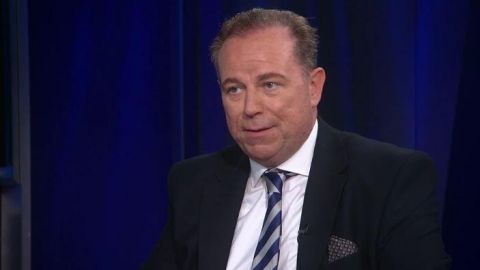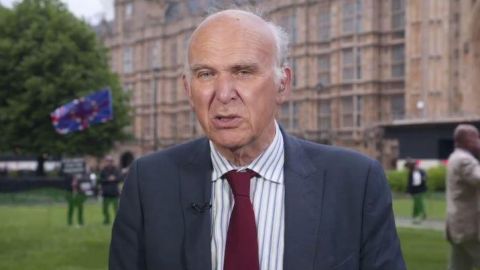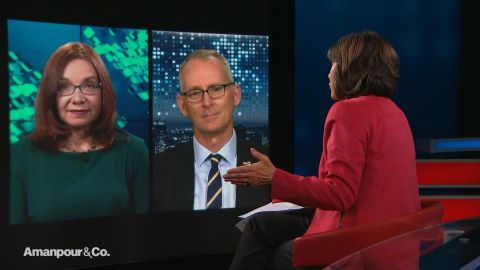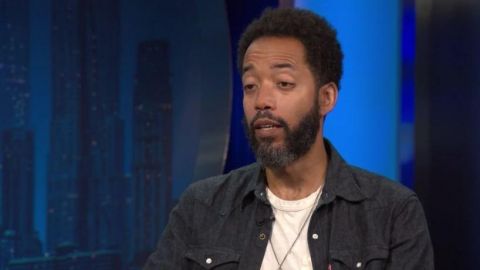Read Transcript EXPAND
CHRISTIANE AMANPOUR: Well, I mean, Vince Cable, you said it, he was very honest, he laid it right out there. Is that something that the British people could accept? Is it something British leaders could accept? Is it something that a future leader of the Conservative Party should accept?
VINCE CABLE, LEADER, BRITISH LIBERAL DEMOCRATS: Well, the answers are no, no, and no. No, it’s a red line. It’s absolutely toxic. It won’t happen. And if that is the American negotiating position, this bilateral agreement will never happen. Probably not a bad thing given all the other baggage associated with it. And I suspect that even if it were ever negotiated it probably wouldn’t get past Congress because we know the House of Representative has a different position on the president on a whole lot of issues. So, I think this much vaunted trade agreement is pretty much a dead duck. And it’s the only issue of substance which is coming out of this visit.
AMANPOUR: And of course, as former business secretary, you obviously have sat around in business negotiations and trade deals. I mean, just for the heck of it, how would this one go? How long would it take? Is it true what the Brexiteers tell the British people, that — and what Trump said today, that there is a phenomenal trade deal to be done, we want to do it. How long do these things take?
CABLE: Well, all trade deals take a long time, years, rather than months. It’s not a tremendous deal. The deal we have with the European Union at the moment is of a very deep relationship. It’s, you know, basic industrial standards are aligned in a way that isn’t and isn’t the case with the kind of bilateral tariff cutting which is proposed with the United States. It’s a much more substantial relationship. And we’ve been offered, by comparison, a very weak and relatively unfavorable arrangement. But that isn’t my own concern about the president’s visit, and the new talk about the common heritage and — during the war, which is something we absolutely respect, the Americans are traditional allies of the U.K., I am a great believer, I’m pro-American, I value NATO. But one of the things which the president is threatening is to end the intelligence sharing that has been the centerpiece of our security relationship and it’s because of a quarrel which he’s chosen to pick with China. Now, you can have different views about that, but the British have taken an independent assessment about the risks of dealing with Huawei, for example, and we want — we’re an independent country and we want to do things in our own way and we will not be bullied out of an intelligence sharing arrangement by that kind of politics. It’s very dangerous.
About This Episode EXPAND
Christiane Amanpour speaks with Christopher Ruddy and Vince Cable about the presdient’s state visit to Britain; and Katharine Hayhoe and Bob Inglis about climate change. Michel Martin speaks with Wyatt Cenac about his show “Problem Areas.”
LEARN MORE



